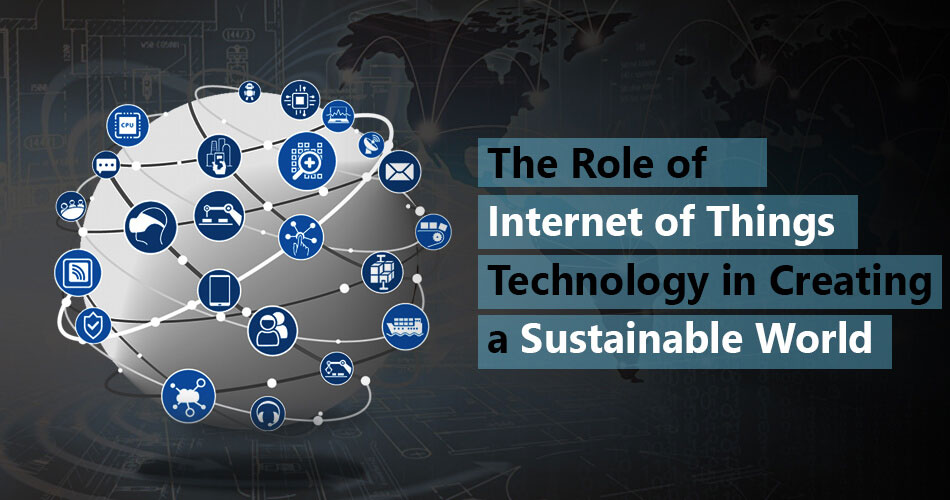What is IoT and Why It Matters?
The Internet of Things (IoT) is a network of interconnected physical devices. These devices collect and exchange data over the internet.
These devices include smartphones, smartwatches, and home assistants. They also include industrial machines and autonomous vehicles. These are equipped with sensors, software, and other technologies. They communicate and perform tasks without human intervention.
IoT is no longer just a buzzword. It is reshaping how we live. It is changing how we work. It is transforming how we interact with the world around us.
Experts predict that by 2030, there will be over 30 billion IoT devices globally. These devices will deeply integrate digital intelligence into every aspect of society.
Let’s explore the role of IoT, its benefits, challenges, and its impact on different sectors.
How IoT is Transforming Different Industries
1. Smart Homes and Lifestyle Enhancement
IoT technology has turned ordinary homes into smart homes.
Smart thermostats, security cameras, lights, and refrigerators help people manage their homes. Voice assistants like Amazon Alexa and Google Home make this management more convenient and efficient.
Benefits include:
- Energy savings through automated lighting and temperature controls
- Enhanced security with smart locks and cameras
- Improved comfort with customized settings and automation
2. Healthcare and Medical Innovations
IoT is revolutionizing the healthcare industry with connected medical devices such as:
- Wearable fitness trackers
- Remote patient monitoring systems
- Smart hospital beds
- Automated drug dispensers
These innovations help doctors monitor patients in real-time, improve diagnosis accuracy, and enhance patient outcomes — even from miles away.
3. Industrial IoT (IIoT) and Smart Manufacturing
In the industrial sector, IoT is driving the rise of Industry 4.0 — the fourth industrial revolution.
Machines and equipment embedded with sensors can monitor their own performance. They can predict maintenance needs. This reduces downtime. These capabilities lead to more efficient and cost-effective operations.
Key benefits include:
- Predictive maintenance
- Real-time data analytics
- Increased production efficiency
- Safer working environments
- Nigeria Declares Public Holiday Today

- Fluminense vs. Cruzeiro – A Deep Dive

- AFCON: South Africa vs Mali

- FIFA CLUB WORLD CUP FINAL: Chelsea FC VS PSG

- Muhammadu Buhari Former Nigerian President, Dies at 82

4. Agriculture and Smart Farming
Farmers are adopting IoT to increase crop yields and optimize farming operations.
Technologies such as soil sensors, smart irrigation systems, and livestock monitoring devices assist farmers. These technologies help them make better decisions based on real-time data.
IoT applications in agriculture can help solve global food security challenges by making farming more sustainable and efficient.
5. Transportation and Smart Cities
IoT is making cities smarter and transportation systems more efficient through:
- Smart traffic management
- Connected public transport
- Automated toll systems
- Vehicle tracking and fleet management
Self-driving cars are also powered by IoT, using a combination of sensors and real-time communication to navigate roads safely.
Key Benefits of IoT
- Efficiency and Automation:
Devices can automate mundane tasks, allowing people and businesses to focus on more important activities. - Cost Savings:
Real-time monitoring and predictive maintenance reduce operational costs across industries. - Data-Driven Insights:
IoT devices collect massive amounts of data, providing actionable insights for better decision-making. - Enhanced Quality of Life:
From healthcare to entertainment, IoT improves comfort, safety, and convenience in everyday life. - Sustainability:
IoT solutions help conserve energy and resources, supporting environmental sustainability goals.
Challenges and Risks Associated with IoT
While IoT offers countless benefits, it also comes with significant challenges:
- Security Risks:
Each connected device is a potential entry point for cyberattacks. Without strong security measures, IoT networks can be vulnerable. - Data Privacy:
The collection of personal and sensitive data raises privacy concerns. Ensuring data protection regulations are followed is critical. - Interoperability Issues:
Different devices and platforms need to work together seamlessly. Lack of standardization can create compatibility problems. - Complexity:
Managing and maintaining large IoT networks can be technically challenging and resource-intensive.
The Future of IoT: What to Expect
As IoT technology evolves, several exciting trends are expected to shape its future:
- AI and IoT Integration:
Artificial Intelligence will make IoT devices smarter. It will enable them to analyze data. AI also allows IoT devices to make decisions autonomously. - 5G Connectivity:
The expansion of 5G networks will support faster, more reliable connections, essential for real-time IoT applications. - Edge Computing:
Instead of sending all data to the cloud, edge computing processes data closer to its generation point. This improves speed and reduces latency. - Smart Cities Expansion:
IoT will continue to fuel the development of smart cities. These cities will have intelligent infrastructure. They will also offer connected services and include sustainable urban planning. - Healthcare Innovations:
Remote surgeries, AI-driven diagnostics, and personalized medicine powered by IoT will redefine healthcare delivery.
Dailymore Analyst Embracing a Connected Future
The Internet of Things is not just changing industries — it is changing lives.
IoT is transforming our homes to be smarter. It is making workplaces more efficient. It is solving global challenges like food security and healthcare access. IoT is a game-changer.
As we embrace this connected future, we must address the security challenges. It’s also vital to focus on privacy and interoperability. By addressing these challenges, we can unlock the full potential of IoT. This will create a smarter, safer, and more sustainable world for generations to come.
Discover more from Dailymore News
Subscribe to get the latest posts sent to your email.





